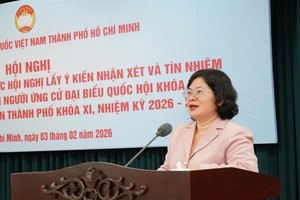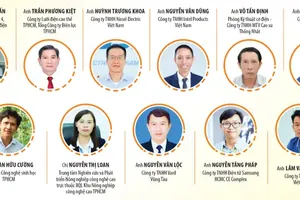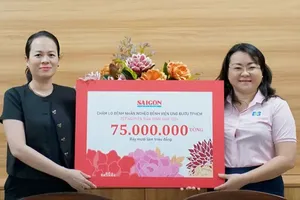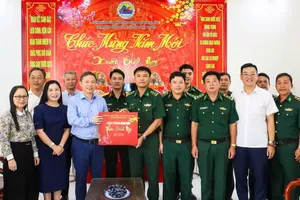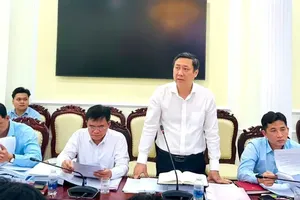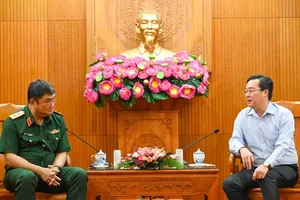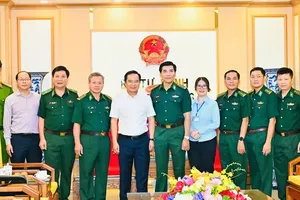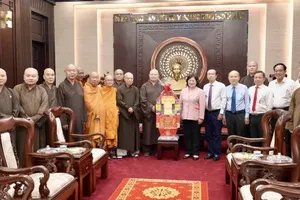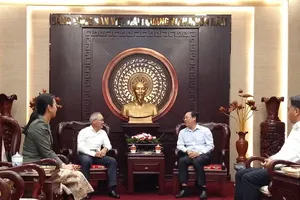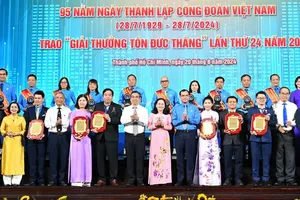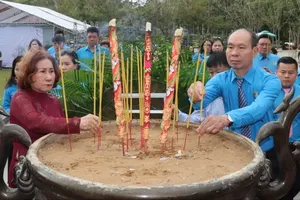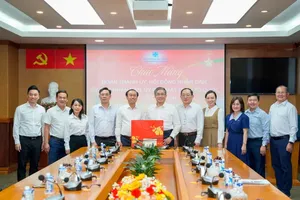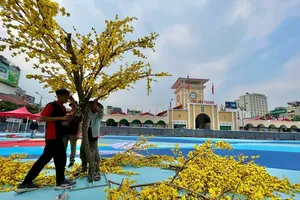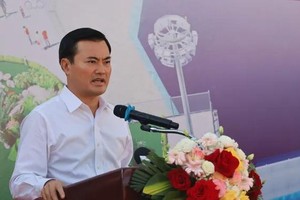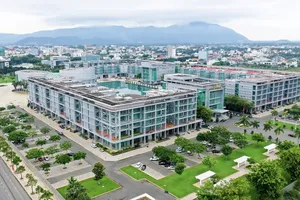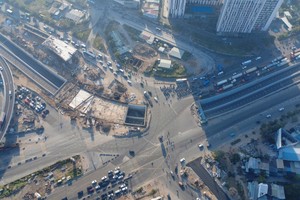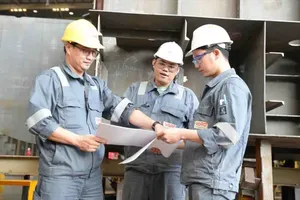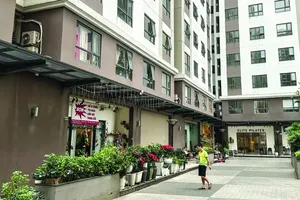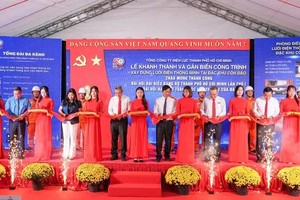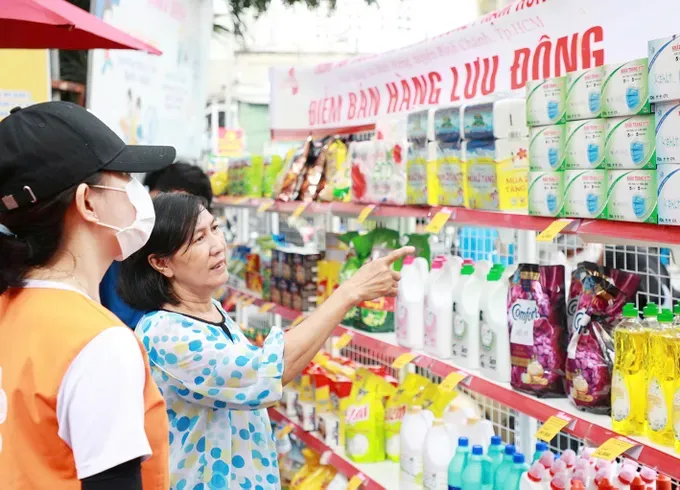
Steadfast pillar of support
On a September afternoon, the steady hum of a sewing machine fills a small rented room in a HCMC alleyway. It belongs to Tran Thi Lung. She deftly moves between her sewing station, working on a customer’s order, and the small kitchen corner, preparing dinner for her two children, one in university, the other in the sixth grade.
Over two decades ago, she and her husband moved to the city from the countryside. Life was modest but happy. Then, in 2021, tragedy struck when Covid-19 claimed her husband’s life. “I was completely devastated, but looking at my two children, I knew I had to find the strength to carry on”, Ms. Lung recounted.
A helping hand came from the government, community associations, and countless kind-hearted donors. Her eldest son received support for his university tuition, while her younger child was granted an annual scholarship. Gradually, her family found its footing again, their hope for the future restored.
Elsewhere in the city, Do Thi Kim Tinh tearfully recalled the day her family received VND80 million (US$3,200) from local authorities to repair their dilapidated house. Before the renovation, heavy rains meant severe flooding inside their home. Thanks to the grant, supplemented by their own savings, they now have a sturdy, dry home where the parents can work and the children can study without worry.
These stories are a testament to HCMC’s social security network, a safety net that has consistently caught the most vulnerable. During the pandemic, the city rolled out massive emergency aid packages, disbursing nearly VND12 trillion ($454 million) to over 7.8 million people in 2021 alone. Initiatives like
“Welfare Packages”, “Zero-Dong Stores”, and “Rice and Oxygen ATMs” became powerful symbols of the city’s solidarity.
Emerging from the crisis, the city doubled down on its commitments. The 2020-2025 period saw the health system fortified with 34 new hospitals and 106 renovated local health stations. A policy of free public-school tuition, from kindergarten through 12th grade, was implemented, easing the financial burden on millions of families. Furthermore, the city’s flagship poverty reduction program achieved its targets a full two years ahead of schedule, a milestone celebrated as part of the 50th anniversary of national reunification.
The HCMC Federation of Labor and the Ho Chi Minh Communist Youth Union – HCMC have spent more than VND2.3 trillion ($87 million) to care for workers, including informal labor groups. Along with that, the city’s “Paying Debt of Gratitude” movement has developed with many practical activities, spreading to every neighborhood, residential group, ward, commune, agency, business, and school, thereby mobilizing the combined strength of the community to join hands in caring for policy beneficiaries.
Amplifying strength of community
This network of support is powered by a synergy between the state and civic organizations. Vice Head Phan Hong An of the HCMC Fatherland Front highlighted the effective collaboration between the city’s Federation of Labor and its Youth Union. Their joint efforts have provided political education and sponsored patriotic movements like “Good Labor, Creative Labor”, which has helped over 75,000 workers earn promotions and raises.
This support extends beyond the formal sector, reaching informal workers like motorbike taxi drivers, mechanics, porters, and private preschool teachers. The city’s compassion also radiates outward.
True to the spirit of “the whole country for HCMC, HCMC for the whole country”, the city mobilized nearly VND333 billion ($13.3 million) as well as 280 tonnes of essential commodities in aid for victims of a storm in 2024 and allocated VND209 billion ($8.36 million) from its 2025 budget to help other provinces eliminate dilapidated housing.
As HCMC embarks on a new chapter, it does so with the firm belief that economic growth and social security must advance in lockstep. “In our journey, HCMC has always benefited from the guidance of national leaders and the support of other localities”, said Vice Chairwoman Tran Thi Dieu Thuy of the HCMC People’s Committee. “We repay that sentiment with practical actions, from financial contributions to timely humanitarian aid, strengthening our national solidarity.” She affirmed the city’s pioneering role in creating policies that improve the health, longevity, and quality of life for its people.
This ethos was also evident in the regions that have recently merged with HCMC. Before the merger, Binh Duong Province had invested heavily in building 86 new schools, raising the rate of public schools meeting national standards to 83.48 percent, and modernizing its healthcare system.
Similarly, Ba Ria – Vung Tau Province had eliminated poverty by its own rigorous standards and invested VND10 trillion ($400 million) in breakthrough social policies on supporting education, health, social security, and national target programs; put 61 new schools of all levels into operation, raising the rate of schools meeting national standards to 80 percent.
The health sector has gradually developed comprehensively, ready to respond effectively to epidemics. Medical examination, treatment, and provision of health services have been continuously improved; facilities and medical equipment have been prioritized for synchronous investment and modernization.
HCMC Chairman Nguyen Van Duoc has consistently emphasized this core identity. “HCMC has long been known as a city of compassion,” he stated in recent meetings. “We are determined to combine state resources with the strength of our community to effectively implement social policies, improve living standards, create jobs, and foster a spirit of self-reliance and solidarity.”
